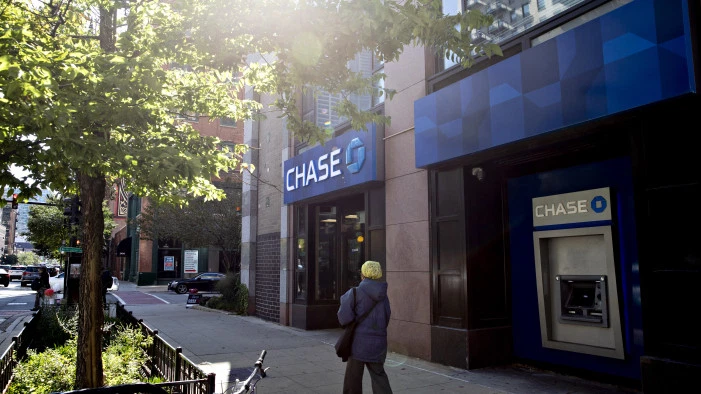Originally published on: http://aeronauticsonline.com/
Let’s face it. Some people just have more difficulty finding a job: those convicted of a crime, veterans, and people with disabilities to name a few. Some may even call these groups “unemployable.” These groups’ “issues,” however, do not automatically disqualify them from finding a job with the airline industry.
Many industry managers have come to realize that a more diverse workforce gives all of their employees the incentive for more creativity and innovation. The airline industry is also moving in this direction. Let’s examine the qualifications for specific jobs within the airline industry, ways that airlines are going out of their way to hire certain groups, and who may be disqualified from being a flight attendant or a pilot.
What Are Your Qualifications?
Most people, when they think of airline jobs, automatically think of pilots, and for good reason. Pilots and other members of the flight crew make up one-third of those employed by the airlines. Another misconception people have is to get a position with an airline, you must have a college degree, and that is simply not true. There are many high-paying jobs you can get without a college degree if you just look for them.
The most popular airline position that does not require a degree is that of a flight attendant. To become a flight attendant, you must complete a three- to six-week training program that is conducted by the airline. Upon successfully completing the program, the candidate earns the Federal Aviation Administration Certificate of Demonstrated Proficiency, at which point, they can work in their chosen position.
Felons
From arraignment to conviction to eventual release, felons often have a difficult life, and most just want a second chance. But even after they pay their debt to society and supposedly have a “clean slate,” most people don’t treat them as such. More than a quarter of people who served their time are unemployed.
So, does the airline industry hire felons? American Airlines states that they completely consider “all qualified applicants, including those with a criminal history.” This signifies that they examine an applicant’s prior experience and qualifications more than their previous legal issues. This doesn’t mean an applicant will find it easy to secure a position with an airline. Rather, that it is not impossible.
And what about the coveted position of a flight attendant? Felons are not completely prohibited, but it does come with restrictions. If a person was convicted of a felony within the last five years or has more than one such conviction, they are ineligible. Why? A flight attendant needs to be able to fly in and out of Canada, and Canadian law forbids a person with a conviction to do so. The felon can sometimes get around that, however, by applying for a waiver from Canadian immigration.
Veterans
Another disproportionately unemployed group is veterans. There are several reasons for this. A lot of civilian employers stereotype veterans as being very rigid and inflexible. Sometimes, it may be a challenge for a veteran to put their military-based skills into civilian language. They may also be skilled in a few things that the employer wants, but not have all of the skills that an employer expects.
Many of the skills veterans gain as part of their military training like motivation, ambition, and the ability to adapt, make them great pilot candidates. One big obstacle for some veterans becoming pilots is specific physical and mental conditions that their military service may have caused including Gulf War Syndrome and PTSD. In addition to these specific conditions, many antianxiety and antidepressant medications are on the “do not take” list, which excludes many veterans from being considered “pilot material.”
Another big roadblock that veterans face to becoming pilots is a lack of funds. Most veterans find the cost of the training and renting an airplane for the required flight time cost-prohibitive. In 2018, this problem of finances was solved for 40 veterans, thanks to the “Forces to Flyers” program. This program was designed to provide “flight training extending from the first flight lesson through the training necessary to become a Certified Flight Instructor (CFI) or Certified Flight Instructor-Instrument (CFI-I),” paving the way for veterans to become pilots.
People with Disabilities
Many stereotypes hold employers back from hiring people with disabilities. Employers believe that they will not be as productive, they will be absent more frequently, and that, due to government regulations, they will have difficulty firing them if they do not work out.
In addition, the people within the airline industry are often perceived as more physically-fit than the general population, largely due to the strong influence that the military has had on aviation throughout the years. This doesn’t mean, however, that you cannot find work in the following positions:
- Aviation Maintenance Technician
- Inspector
- Emergency or Medical Professional
- Customer Service
People with disabilities can find work through the airlines with a special program geared just for them: the National Outreach Program for Diversity and Inclusion. This program helps individuals with the following disabilities find gainful employment:
- Blindness
- Deafness
- Missing extremities
- Paralysis
- Dwarfism
When interviewing for a position, applicants under this program are expected to bring, along with the regular documents such a resume and transcripts, documentation about their specific disability.
This program does not mean that these individuals will qualify to be pilots, however. Many medical conditions disqualify someone from pursuing the position of a pilot:
- Epilepsy
- Coronary heart disease
- Substance Abuse
- Bipolar disease
- Unconsciousness that has no cause
The airline industry recognizes the benefits of diversity in its workforce and is doing its best to incorporate diversity by hiring felons, veterans, and people with disabilities. They prefer hiring on merit instead of looking at a person’s disqualifying attributes. There are even programs that provide veterans and people with disabilities the chance to become part of the airline industry when it may not have been possible in the past. Due to the strides of the airline industry, many can find gainful, satisfying employment in a field that they love.
How To Get A Job With An Airline - The Straight Scoop
Companies hire felons | companies that hire felons | Companies that hire ex-offenders | Employers that hire ex-offenders | employers that hire felons | Jobs for felons | jobs for ex-offenders | jobs that hire felons | places that hire felons | felon friendly jobs | felon friendly employers | how to get a job with criminal record | second chance jobs for felons | temp agencies that hire felons | high paying jobs for felons























